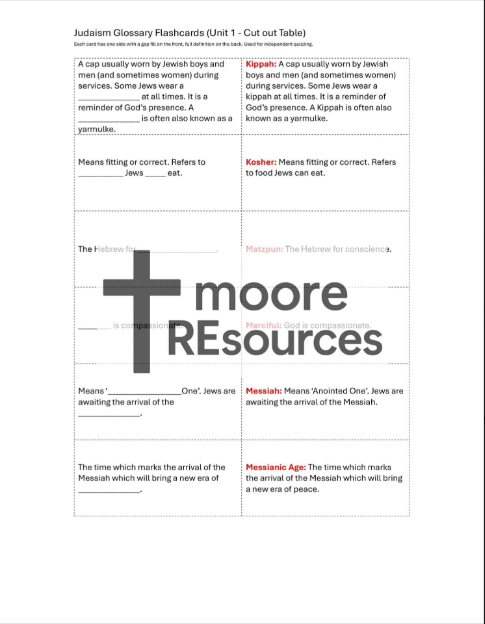 Image 1 of 2
Image 1 of 2

 Image 2 of 2
Image 2 of 2



1.81 The Meaning of Life
Invite your students to explore alternative views on life’s purpose with this clear and engaging Lesson Pack for 1.8.1: Non-Religious Perspectives on the Meaning of Life. Fully aligned with the WJEC Religious Studies 2025 specification, this lesson supports learners in understanding Humanist and broader secular viewpoints on fulfilment, ethics, and personal meaning — encouraging critical comparison with religious perspectives.
Learners Will Understand:
Non-Religious Views on the Meaning of Life
No single, agreed meaning of life — it is open to personal interpretation
The idea that individuals create their own meaning and purpose based on personal experiences and values
The principle that people should be free to live as they choose, provided they do not harm others (linked to moral autonomy)
Finding meaning through connection with the natural world, hobbies, relationships, and personal passions
Humanist Beliefs on Meaning and Purpose
Autonomy — individuals shape their own lives and values
Ethical living and responsibility — doing good without relying on religious frameworks
Pursuit of fulfilment and happiness — prioritising personal growth, creativity, and contributing to the well-being of others
Valuing human relationships and shared human experiences as central sources of purpose
Suitable for:
WJEC GCSE Religious Studies (from 2025)
KS4 Ethics or Philosophy units
Citizenship and PSHE sessions on values and purpose
Homework, enrichment, and revision
Invite your students to explore alternative views on life’s purpose with this clear and engaging Lesson Pack for 1.8.1: Non-Religious Perspectives on the Meaning of Life. Fully aligned with the WJEC Religious Studies 2025 specification, this lesson supports learners in understanding Humanist and broader secular viewpoints on fulfilment, ethics, and personal meaning — encouraging critical comparison with religious perspectives.
Learners Will Understand:
Non-Religious Views on the Meaning of Life
No single, agreed meaning of life — it is open to personal interpretation
The idea that individuals create their own meaning and purpose based on personal experiences and values
The principle that people should be free to live as they choose, provided they do not harm others (linked to moral autonomy)
Finding meaning through connection with the natural world, hobbies, relationships, and personal passions
Humanist Beliefs on Meaning and Purpose
Autonomy — individuals shape their own lives and values
Ethical living and responsibility — doing good without relying on religious frameworks
Pursuit of fulfilment and happiness — prioritising personal growth, creativity, and contributing to the well-being of others
Valuing human relationships and shared human experiences as central sources of purpose
Suitable for:
WJEC GCSE Religious Studies (from 2025)
KS4 Ethics or Philosophy units
Citizenship and PSHE sessions on values and purpose
Homework, enrichment, and revision












